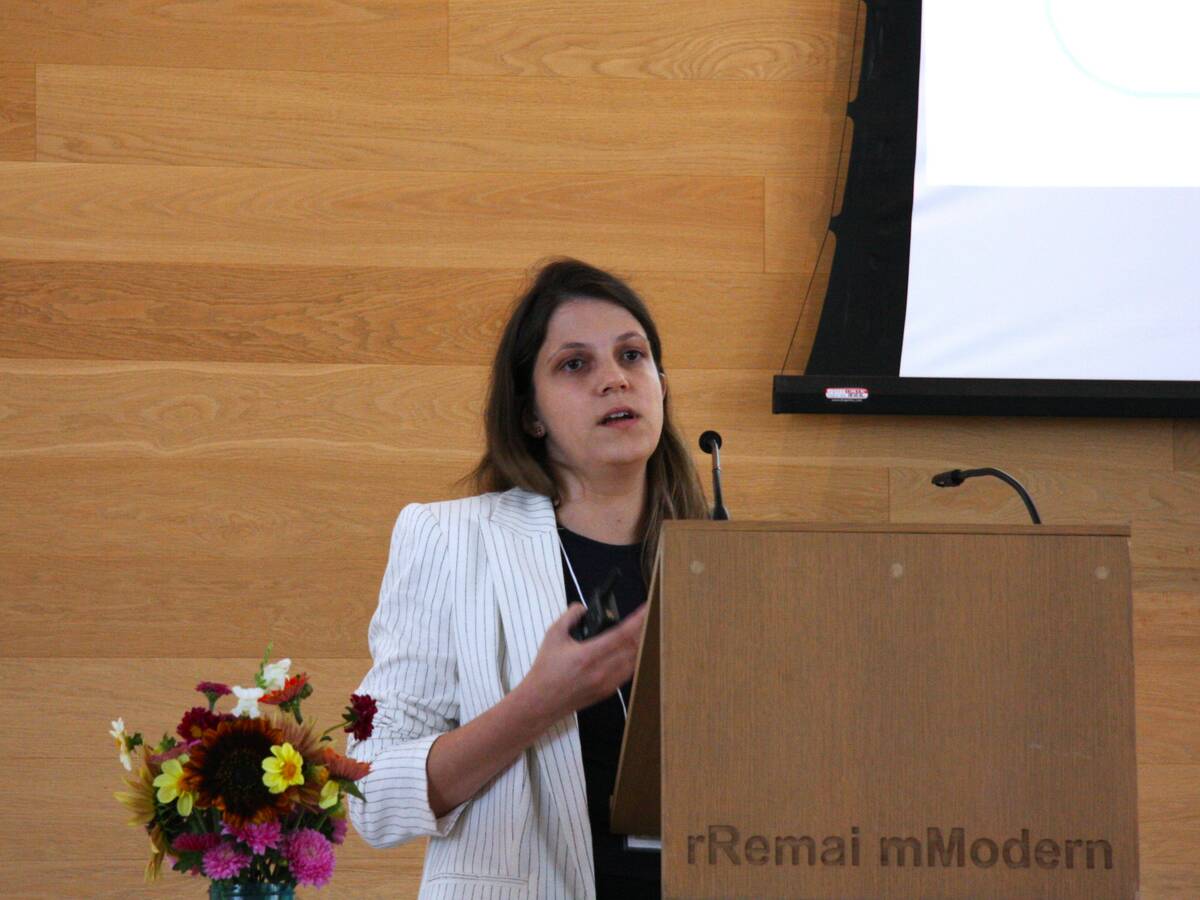RAMA, Sask. — Big Sky V near Rama, Sask. had just one day to clean up beer cans, napkins and half-eaten pork burgers left over from its grand opening barbecue July 4.
The human visitors were displaced the next day by its permanent residents, a truckload of piglets bound for the nursery of Big Sky Farms’ fifth and newest facility.
Vehicles from the hundreds who attended the ribbon cutting ceremony lined the grid road, sewage lagoons and barn yards.
“Today we’re put on the map,” said Darrell Dutchak, mayor of Rama, population 100. “It was a dream and today it’s reality.”
Read Also

Fusarium head blight mycotoxin detector in the works
A PhD student at the University of Saskatchewan has been working on developing a method of detecting fusarium damaged kernels to ease the struggles of producers, agronomists and industry.
Dutchak said the barns bring economic development to the east-central part of Saskatchewan where agriculture is the sole industry and jobs are hours away by car.
“We’re pretty much a have-not area,” he said.
The four Rama barns will each house 4,800 pigs. The project, which cost $30 million, created about 250 construction jobs and 40 positions in the barns.
Each year Big Sky will buy one million bushels of grain, including barley, wheat and peas from local farmers and will also sell and apply its hog effluent as fertilizer at $15 an acre.
Harvey Zazula, reeve of the rural municipality of Hazel Dell, said there are few resources to draw on in rural Saskatchewan.
“We have to take matters into our own hands and make economic growth happen,” he said. “Hog barns are a start in the right direction.
“This has been a value-added industry for farmers.”
Zazula said the RM already includes two other Big Sky farrowing and nursery operations that have run without incident.
Jack Prychak, reeve for the RM of Invermay, said there was much opposition to the latest barns, citing the shelving of the original site near Buchanan and concerns about their effect on the Good Spirit water basin.
“You don’t know what you’re getting yourself into,” he said. “I have very mixed feelings.”
Prychak sits on a government advisory board that monitors and oversees complaints arising from hog operations in the province.
He agreed that RMs must seek out development projects to sustain themselves, but noted there are costs in maintaining roads for hog barns with little direct return to the RM. The barns are assessed as agricultural land and the taxes, much of which go to schools, are based on the small amount of land they occupy.
The RMs of Hazel Dell and Invermay receive $25,000 annually from Big Sky in lieu of taxes to help cover that increased cost. Other grants come from provincial and federal coffers for general road maintenance annually.
Florian Possberg, chief executive officer of Big Sky, said the company’s goal is to produce two million hogs by 2008.
“Our goal is to be the Canadian leader in pork production in a socially responsible manner,” he said.
Big Sky can add value to the grain Saskatchewan farmers produce but Possberg said it will not happen in isolation.
“People have to step up to the plate, take chances and finance projects,” he said, in praising community efforts to spearhead the drive to bring Big Sky to Rama.
The company avoids opposition by building only where it is invited and by working with a local steering committee.
“Some would rather not have hog production but if we don’t do something in this province, what are we going to have? There isn’t an industry that doesn’t have its pluses and minuses.”
Although American hog producers are gun-shy about expanding breeding herds after the financial disasters of 1999-2000, Possberg is optimistic. He plans to build a 5,000-sow operation later this year near Porcupine Plain, Sask.
Possberg said there is strong demand for pork in Asia, where producers are unable to compete with factories for land needed for hog expansion.
Western Canada has the potential to slaughter 14 million hogs but now handles only nine million.
“What’s restricting us is the supply of hogs. We’re working on that. We’re doing our part,” said Possberg, citing the 120,000 kilometres added to his vehicle’s odometer in the last 17 months alone.
“We know the rest of the world won’t give us market share; we have to earn it,” he said.
Big Sky Farms was established in 1995 and is based in Humboldt, Sask.
It operates units near Humboldt, Goodeve, Kelvington, Lintlaw, Preeceville, Sturgis and Ogema.














